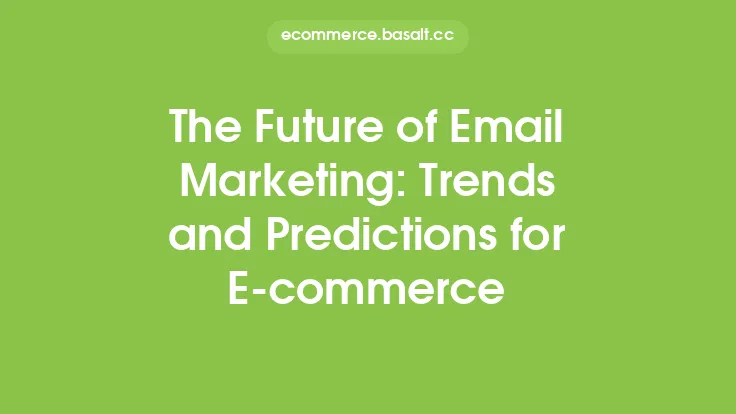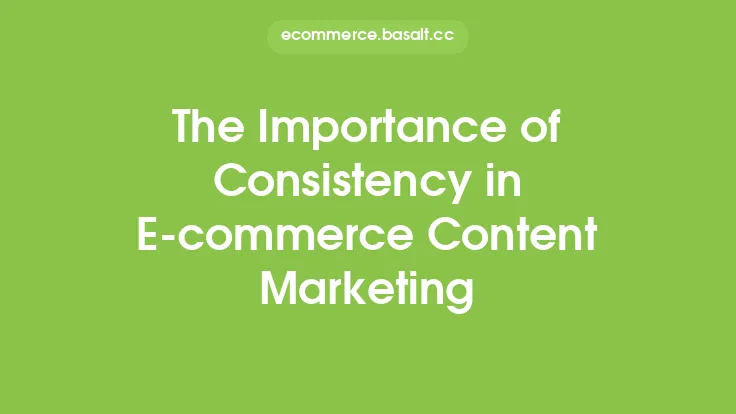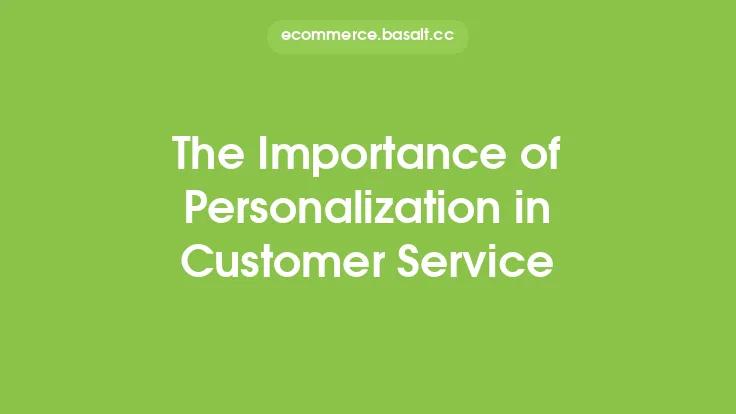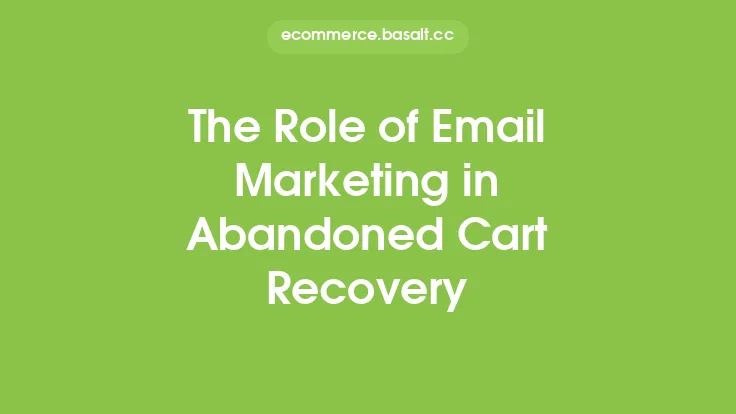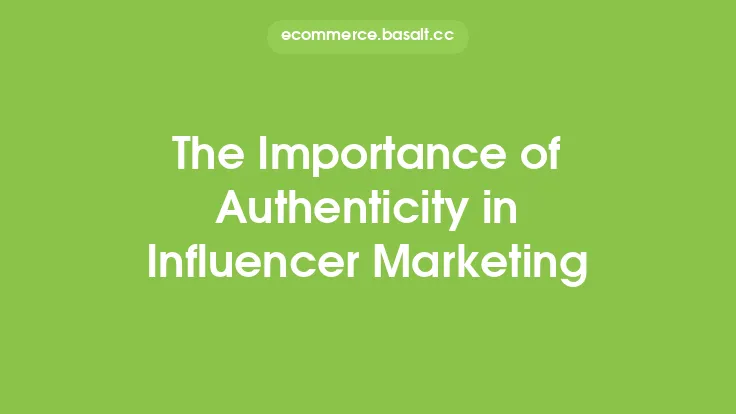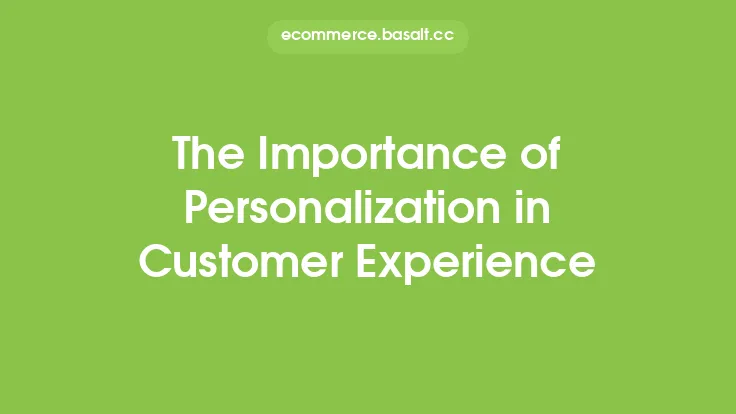In today's digital age, email marketing has become an essential tool for e-commerce businesses to reach and engage with their target audience. With the rise of online shopping, companies are looking for ways to personalize their marketing efforts to stand out from the competition and build strong relationships with their customers. One of the most effective ways to achieve this is through personalization in email marketing. Personalization involves tailoring email content to individual subscribers based on their preferences, behaviors, and demographics. This approach helps to create a sense of relevance and familiarity, making subscribers more likely to engage with the email and ultimately, drive conversions.
What is Personalization in Email Marketing?
Personalization in email marketing refers to the process of creating targeted and relevant content that resonates with individual subscribers. This can be achieved through various techniques, including using the subscriber's name, referencing their past purchases or interactions, and offering personalized recommendations. Personalization can be applied to various aspects of email marketing, including subject lines, email copy, images, and calls-to-action. By using personalization, businesses can create a sense of connection with their subscribers, making them feel valued and understood.
Benefits of Personalization in Email Marketing
The benefits of personalization in email marketing are numerous. Some of the most significant advantages include:
- Increased engagement: Personalized emails are more likely to be opened, read, and acted upon, resulting in higher engagement rates.
- Improved conversion rates: By tailoring content to individual subscribers, businesses can increase the likelihood of conversions, such as sales, sign-ups, or downloads.
- Enhanced customer experience: Personalization helps to create a sense of relevance and familiarity, making subscribers feel valued and understood.
- Better customer insights: Personalization requires businesses to collect and analyze data on their subscribers, providing valuable insights into their preferences and behaviors.
- Competitive advantage: Personalization can help businesses differentiate themselves from their competitors, establishing a unique and memorable brand identity.
Types of Personalization in Email Marketing
There are several types of personalization that can be used in email marketing, including:
- Basic personalization: Using the subscriber's name and basic demographic information to create personalized content.
- Behavioral personalization: Using data on the subscriber's past behaviors, such as purchases or interactions, to create targeted content.
- Preference-based personalization: Using data on the subscriber's preferences, such as product interests or communication channels, to create personalized content.
- Real-time personalization: Using real-time data and analytics to create personalized content that is relevant to the subscriber's current needs and interests.
- Predictive personalization: Using predictive analytics and machine learning algorithms to anticipate the subscriber's future needs and interests.
Best Practices for Implementing Personalization in Email Marketing
To implement personalization in email marketing effectively, businesses should follow these best practices:
- Collect and analyze data: Collect data on subscribers' preferences, behaviors, and demographics, and analyze it to create targeted content.
- Use segmentation: Segment subscribers into distinct groups based on their characteristics, behaviors, and preferences.
- Use personalization tokens: Use personalization tokens, such as names and locations, to create personalized content.
- Test and optimize: Test and optimize personalized content to ensure it is effective and resonates with subscribers.
- Use automation: Use automation tools to streamline the personalization process and ensure consistency across all email campaigns.
Common Challenges and Limitations of Personalization in Email Marketing
While personalization in email marketing offers numerous benefits, there are also common challenges and limitations that businesses should be aware of. Some of the most significant challenges include:
- Data quality and accuracy: Ensuring that data is accurate and up-to-date is crucial for effective personalization.
- Data privacy and security: Businesses must ensure that they are collecting and using data in a way that is compliant with data privacy and security regulations.
- Complexity and scalability: Personalization can be complex and difficult to scale, particularly for large businesses with multiple email campaigns.
- Measuring effectiveness: Measuring the effectiveness of personalization can be challenging, particularly if businesses are using multiple personalization techniques.
Future of Personalization in Email Marketing
The future of personalization in email marketing is exciting and rapidly evolving. Some of the trends and predictions that are expected to shape the future of personalization include:
- Increased use of artificial intelligence and machine learning: AI and machine learning algorithms will become more prevalent in personalization, enabling businesses to create more targeted and effective content.
- Greater emphasis on data quality and accuracy: As data privacy and security regulations become more stringent, businesses will need to prioritize data quality and accuracy to ensure effective personalization.
- More focus on customer experience: Personalization will become more focused on creating a seamless and intuitive customer experience, rather than just driving conversions.
- Increased use of real-time data and analytics: Real-time data and analytics will become more important in personalization, enabling businesses to create content that is relevant to the subscriber's current needs and interests.
